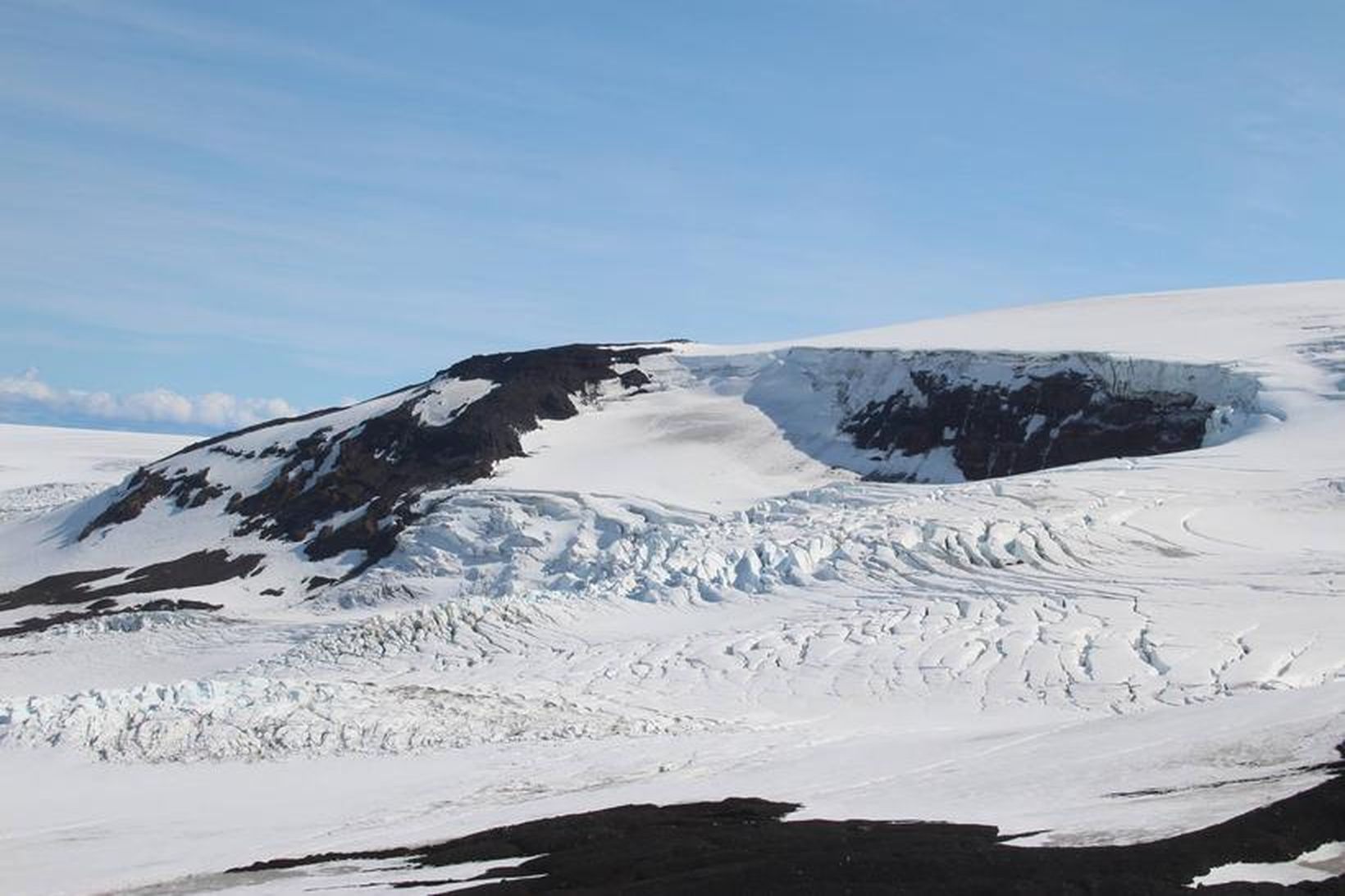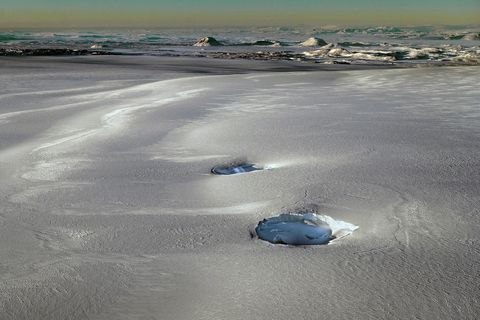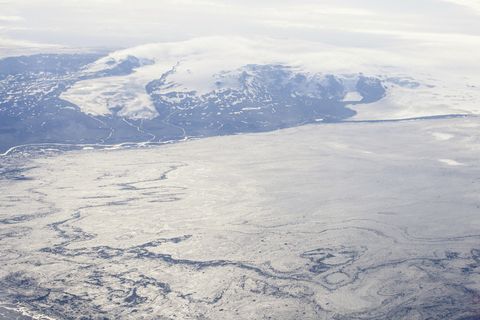Bárðarbunga is still roaring
About 950 earthquakes have been detected with the earthquake monitoring network of the Icelandic Meteorological Office (IMO) since midnight. Several of these events were larger than magnitude 3. The swarm initially started in the Bárðarbunga caldera and has been migrating in two clusters towards the north and the east of the volcano.
Yesterday, these two clusters were active east and north of Bárðarbunga as activity was migrating northeastwards. While strongest events were located in the northern cluster, the highest number of events were detected in the eastern cluster.
The strongest event since the onset of the swarm was detected on Monday morning 02:37 in the northern cluster. Analysis revealed that its magnitude was 4.5 and it was felt in Akureyri and Lón in the northern part of the country. Since this morning, activity has significantly decreased in the northern cluster.
The eastern cluster is still active and two strong pulses occured between 10:45 and 12:00 as well as 16:50 and 17:30 today. Within the first pulse around noon, the cluster was again migrating northeastwards, but most events are now located between Bárðarbunga and Kverkfjöll. As reported earlier, GPS ground deformation data has evidenced that the earthquake swarm is caused by magma intrusion.
Throughout the whole sequence until now, the majority of events today was at 5-10km depth. No signs of migration towards the surface or any other signs of imminent or ongoing volcanic activity have been detected so far. IMO is monitoring the area around the clock very closely and will update in case of any changes.
Civil Protection is still on Uncertainty Phase, which means that course of events has started that may lead to natural hazard in the near future. The National Commissioner of Icelandic Police (NCIP) has today met with the Prime Minister of Iceland, Minister of Interior and government officials to consult on the issue. The NCIP also met with officials from the Ministry of Foreign Affairs, foreign embassies in Iceland and from key stakeholders in Iceland.
Mountain roads north of Vatnajökull, F88 (completely) and F910 (partly), have been closed for all traffic. That includes cars, bikes and hiking.





 Virknin dregist saman um 600 metra
Virknin dregist saman um 600 metra
/frimg/1/53/8/1530849.jpg) Fatlaður drengur fær ekki þjónustu í verkfalli
Fatlaður drengur fær ekki þjónustu í verkfalli
 Myndir: Grindavíkurvegur aftur undir hraun
Myndir: Grindavíkurvegur aftur undir hraun
 Yfir 300 stæði fóru undir hraun
Yfir 300 stæði fóru undir hraun
 Hraunið við bílastæði Bláa lónsins
Hraunið við bílastæði Bláa lónsins
 „Má segja að þetta gos hafi þjófstartað“
„Má segja að þetta gos hafi þjófstartað“
 „Erum í miðri hrinu“: Styttist í Eldvörp
„Erum í miðri hrinu“: Styttist í Eldvörp
 Hraunið náð Njarðvíkuræð: Fylgjast með raflínu
Hraunið náð Njarðvíkuræð: Fylgjast með raflínu